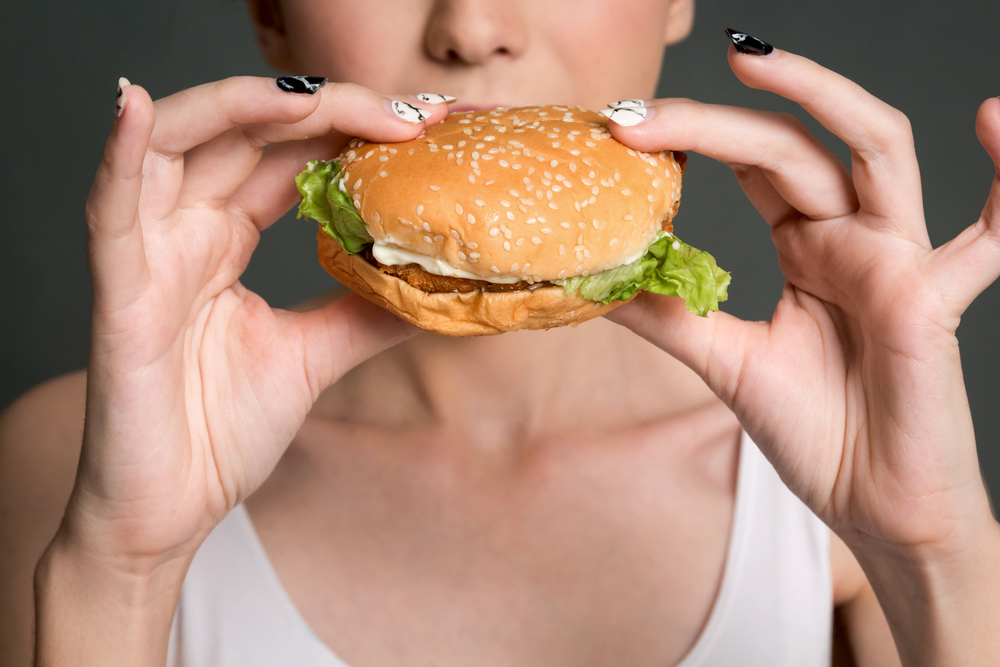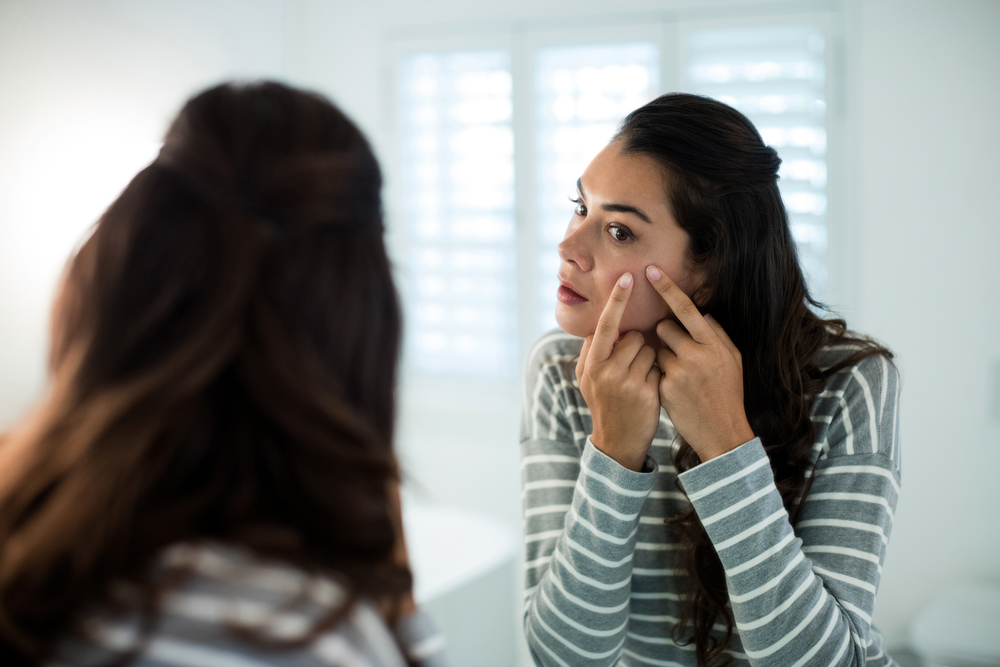Have you ever heard that phrase: “You are what you eat”? What about: “True beauty comes from within”? The messages seem to be good, promoting healthy eating in order to be healthy and being a genuinely good person rather than performing acts to make you look good. But how relevant is what you eat to your skin? Does your diet truly impact your skin health? If you eat nothing but healthy things, is this an assurance of glass-like skin?
You might be surprised to learn the truth about diet and your skin health. Here’s what you need to know about how much of a role your diet actually plays in the health of your skin.

Can You Actually Eat Your Way To Healthy Skin?
Your diet can impact your skin health, but probably not as much as you would expect it to. People who eat well and still struggle with skin issues are very well aware of this. While some people may notice that their acne flares up when they eat chocolate, others can have all the chocolate they desire and maintain perfect skin.
Dermatologists warn against overestimating the importance of your diet in regards to your skin. It is important to strive towards a healthy diet and drinking enough water for your overall health, and certain foods can trigger skin issues depending on the individual, but treating nutrition as a cure-all for skin problems is a dangerous road to tread down.
Your diet plays a role in your skin health, of course. But it’s just one factor to consider. Your genetics, your environment, your stress levels, your skincare routine, the products you use, and more all play significant roles in whether or not you have skin problems.
One could eat terribly and enjoy perfect skin due to their genetics and environment, while someone else could diligently follow a skincare routine, be careful to eat well and drink enough water, and to monitor their stress, and yet still have skin problems. This can worsen mental health and self-esteem, as one is doing everything society tells them to in order to achieve perfect skin, but still struggles with skin problems.
Certain foods are linked to a higher potential of skin problems. People who have followed diets and noticed better skin as a result could tell you this. It is important to work with a dermatologist and doctor in order to figure out whether or not certain foods are irritating your skin or not. If so, you can certainly eat your way to healthy skin. But to minimize the risk of a dangerously restrictive diet, it’s best to work with professionals in order to do this.
Is There Such A Thing As ‘Good’ And ‘Bad’ Foods For Your Skin?

All it takes is a quick Google search or a venture into the influencer side of social media, and you’ll see people categorizing foods into ‘good’ and ‘bad’. This isn’t just when people talk about how diets can influence their skin, but a widespread, general thing.
This is quite dangerous, especially as the markers on what is ‘good’ and ‘bad’ move around a lot, depending on the diet one follows and their individual body. For instance, if you have nut allergy, you wouldn’t want to go anywhere near nuts. But for other people, nuts are an excellent source of protein and can provide some excellent skin-boosting nutrients.
While one should strive to eat well and to consume heavily processed foods in moderation, there’s no such thing as ‘good’ and ‘bad’ food in and of itself- it’s just food. The key is to have everything in moderation.
One cupcake won’t hurt you, but have a lot, and you’ll likely feel gross and sluggish and may notice acne breakouts. Moderation doesn’t just apply to foods typically thought of as ‘bad’, but also to ones categorized as ‘good’. For instance, you need to drink water in order to stay hydrated – but there is such a thing as having too much water and then needing to go to the hospital to treat potentially life-threatening hyponatremia.
So, in short: yes and no. It depends on the individual. Dairy can trigger acne breakouts in some people, but have no effect on someone else. It’s important to pay attention to your skin and what it’s telling you.
How Do You Figure Out If Your Diet Is Impacting Your Skin Health?

Now, just because the effects of foods can be quite variable does not mean that your diet can’t impact your skin health. Processed foods can increase your insulin levels, which can worsen acne. Cutting out refined carbs can improve acne, though sticking to a low glycemic index diet is safer than keto. Sugar can increase inflammation, which can increase acne. Drinking more water can improve your skin’s hydration levels.
In order to uncover whether or not your diet is playing a role in your skin issues, an elimination diet can help you find any foods that are triggering them. Keeping a food journal and keeping track of your skin can help you trace whether or not that acne cyst resulted from what you ate and whether your dry skin is just because your skin is naturally drier or whether you need more hydration.
When doing this, it’s best to work with medical professionals. Placing too much emphasis on what you eat and obsessing over food can lead to the development of an eating disorder.
If you have any concerns about your skin, it’s best to talk to a dermatologist. They will be able to tell you what you can do to improve your skin problems, as well as issue any necessary prescriptions.
Allen-Taintor Dermatology is here to help you. If you need help with any skin issues and are curious about whether or not your skin problems stem from what you eat or something else, schedule an appointment. We will work to uncover the cause of your skin problems and help you improve your skin health.
